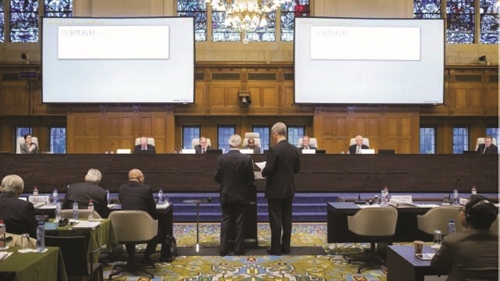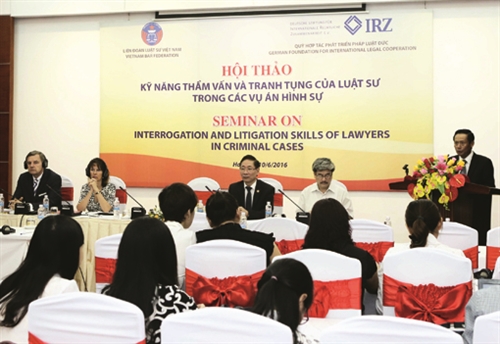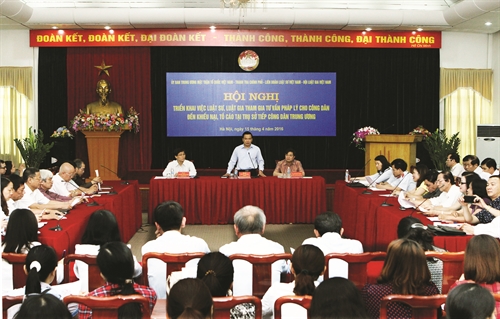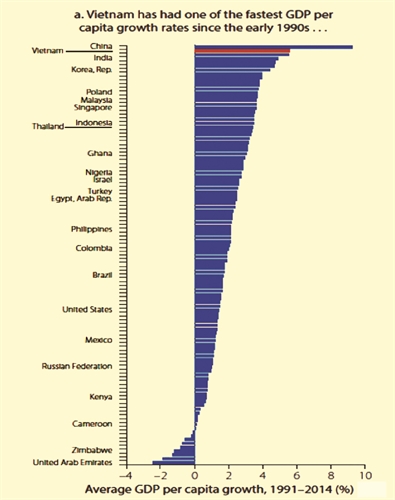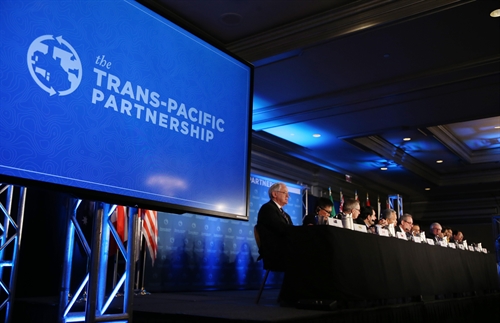As the process plays an extremely important role in legislation, the country’s law-making process has been renewed constantly over the past years. Although the renewed process has helped pass more legal documents faster, there remain issues to be addressed.
Dr. Nguyen Si Dung
Issued related to planned law-making work
We can say objectively that this form of law-making reflects the country’s perception and reality. When the country shifts from the model of a state operating under directives and resolutions to the one of a law-governed state, having sufficient laws is an objective demand. Therefore, it is also important for mapping out law-making plans. Such method helps concentrate resources and impose discipline on the entire drafting and passage process.
Although the country’s legal system has been basically fully developed, problems have arisen in connection with the legislative process beginning with law-making programs.
First, legislative activities may be remote from reality. Life poses hot issues to which we fail to respond as many of these issues have not been included in a busy law-making program. Although the program is adjusted every year, it’s still slow. At present, according to the new Law on the Promulgation of Legal Documents, the law-making program is worked out every year instead of five years as before. In addition, relevant agencies have to concentrate every resource on completing the law-making program so they have no more resources to deal with arising issues. This slowness and incompatibility may hinder the efficiency of the national administration.
Second, it is difficult to identify accurate legislative policies when the law-making program is to be implemented. As a consequence, we have developed and included innumerable policies, according to our subjective desires which are all good ones, in bills. Researchers call such bill a stuffed one. Once adopted, a stuffed bill will become a stuffed law, which basically cannot be enforced as it contains too many policies and none of governments can afford resources to enforce it. If unenforceable, a law will lose its sacredness. That is not to mention the overlapping and conflicts among legal documents.
Third, a major impetus to develop a legislative program is the desire of ministries and sectors to acquire more powers. The more powers ministries and sectors have, the less freedom people enjoy and the more permission they have to ask for. Many ministries and sectors even begin to seek contents of the bills only after they are included in the program. It should have been the opposite way.
Fourth, it is difficult to appraise the necessity of dozens and hundreds of bills at a time. This work is impossible in reality. Doing so would augment the risk of separating legislative activities from life.
How can we overcome the law-making according to plan?
The most rational way is to allow the government to be more proactive. In nature, the National Assembly (NA)’s five-year legislative program must reflect the strategic tasks and orientations set out by the National Party Congress for its five-year tenure. The Government will work out plans to perform the above tasks and orientations for submission to the NA according to its work schedule. In addition, fast-track procedures are needed for the Government to present necessary bills at the fastest speed so as to tackle the country’s arising hot issues. We should bear in mind that the Government must have a priority right in establishing the NA’s agenda.
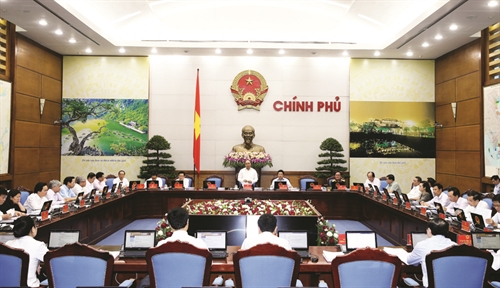 |
| PM Nguyen Xuan Phuc chairs June 2016’s cabinet meeting to discus legislative issues __Photo: Thong Nhat/VNA |
Stages in the legislative process
As soon as the law-making program is adopted, relevant agencies will start drafting bills. The draft bills will be presented to corresponding committees of the NA for verification and later to the NA. A bill will have to go through two readings, namely two plenary sessions of the National Assembly. In the first reading, the Government will submit the bill before the NA while the relevant committee will give their verification opinions and the NA will debate issues which remain controversial. The NA Standing Committee will present the bill in the parliament in the second reading after assimilating opinions of NA deputies and completing the draft.
Our philosophy of the two readings is different from that of other countries in the world where a bill is read three times. The first reading aims at verifying the necessity of the draft. If the majority of parliamentarians consider the bill unnecessary, the bill will die after its first reading. The second reading is designed to appraise legislative policies included in the bill. If the majority of NA deputies fail to agree on these policies, the bill will die after its second reading. The bill is passed in its third reading after a concerned committee has verified technical issues and finalized its text. In the third reading, the bill will be passed if the majority of the committee’s members voice their support, otherwise it will die.
The advantage of passing a bill after two readings is to shorten the time if we do not have to consider it again and again. However, this methodology has its own problems.
The problem that can be seen easily is that the Government cannot pursue the bill to the end. The Government’s role in legislative work is the same as in other activities of the national administration. The Government proposes legislative policies and presents the drafts to the National Assembly for appraisal and passage. Although the Government’s stages in the legislative process need to be renewed such as making clear the policy-making process and the drafting process, improving the capacity of identifying issues and policy research and analysis and legal drafting skills, the opportunities and conditions for the Government to give explanations and defend its legislative policies before the NA should be guaranteed. Under the current regulation, the Government has only one chance to give explanations in the presentation of a bill in the NA. The finalization of a bill is assigned to the NA Standing Committee. This regulation might be originated from the viewpoint that legislation is a power of the NA so the revision and finalization of the texts of bills and the modification of policies also come under its power. Such viewpoint totally fails to reflect the true motivation of the legislative process as well as the role of executive and legislative powers of the legislative process and is just a formal logic. If being assigned to finalize the text of a bill, the NA Standing Committee must give its explanation in the NA. However, policy explanation in the NA belongs to the executive function while policy appraisal belongs to the legislative function. The role change does not matter much if new policies or modifications and supplements making substantial changes in policies are included in the bills. Once this happens, the enforcement of the laws in reality will be extremely difficult because new policies lack research, analysis and impact assessment while issues that the Government strives to address are left untouched. This can be attributable to the delayed issuance of implementing regulations.
Another corollary of the role change is the motivation to improve the quality of drafting work of governmental agencies seriously degrades. Experts of the NA Office remarked that around 70 percent of the contents of the bills were altered after submission to the NA and many people considered this an achievement of the NA. However, not a few experts have expressed their concern over such understanding and way of doing. The question is whether or not the NA has the power to replace a legislative policy proposed by the Government with another one. The answer is no from a technocrat’s perspective as the NA may only pass or reject a legislative policy proposed by the Government. If the NA puts forward a new policy for the Government to implement, the legislative body is encroaching on the policy making realm of the executive branch. Worse, its policy will not be appraised.
It is advisable to go back to the legislative process that was applied before 2008, in which the Government had opportunities to expound and defend its legislative policies through verifications, debates and considerations in the NA.
Finally, the issue that is different from the world is that we often fail to clearly distinguish policy issues from technical issues. In other countries, parliamentarians and debates at plenary sessions only pay attention to policy issues. We will face more risks when our NA’s plenary sessions debate and decide technical issues. Technical issues are experts’ work, not of NA deputies as they cannot be debated and voted by the majority. Therefore, it is necessary to consult experts’ opinions to modify any provision of a bill. Although specialists from the NA Office have closely cooperated with ministries’ experts, the latter could not voice their opinions when the NA Standing Committee or the NA debates.
As far as procedures are concerned, experts cannot give their opinions at sessions of the NA Standing Committee as well as of the NA. Therefore, it is important to clearly distinguish between policy issues and technical issues and the NA and the NA Standing Committee should only make decisions on policy issues.-
